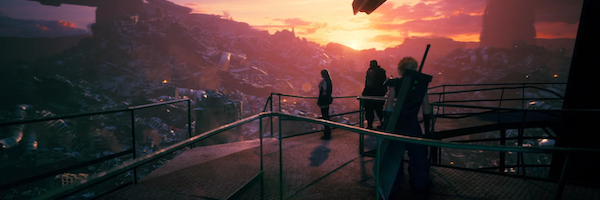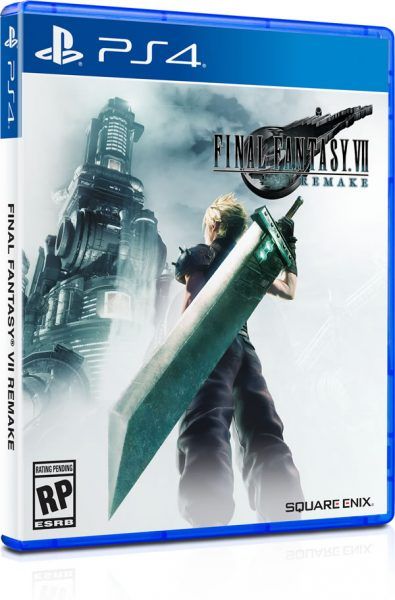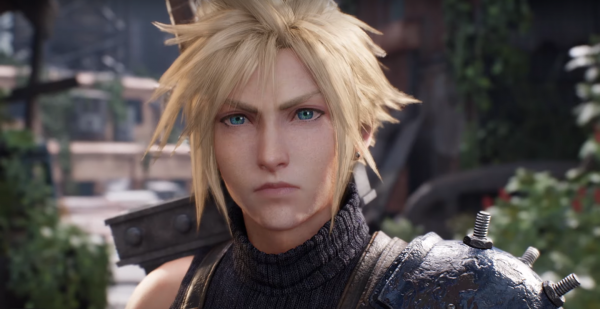Major spoilers ahead for Final Fantasy VII and Final Fantasy VII: Remake.
The fan idea behind Final Fantasy VII: Remake was pretty simple: just give us the game we already love but with better graphics. That was easier said than done since the technical limitations at the time of the original's release back in 1997 didn't lend themselves to such an easy polish. There was no way to get those blocky figures looking human, and as gaming and graphics accelerated in the decades since, it wouldn't be enough to just update the base elements and call it a day. Ultimately, to be worth the amount of work required, a remake of Final Fantasy VII would need to rethink the original and be a new game in its own right.
Now that Final Fantasy VII: Remake is finally here, it's a fascinating beast. For starters, it's not the full story that was released back in 1997. It's not even just the Midgar section that makes up the first 7-8 hours of the original 60-hour game. Instead, for the most part, it's an adaptation, or a remake in the way that we think of a movie remake—taking the basic parts of the original narrative and then expanding and rethinking them. So, for example, in the original game, you join an eco-terrorist group called Avalanche and blow up a reactor that's draining the planet of its life force. In Final Fantasy VII: Remake, those events still happen, but there's time for expanding the character relationships and finding out what the average citizen thinks about your actions. Remake is constantly interrogating and investigating the plot of the original.
But then the ending goes a step further and reveals that the title isn't just a descriptor; it's a directive. Throughout Remake, you encounter these odd, floating, hooded specters. I kept wondering, "Did the original Final Fantasy VIIhave dementors and I forgot about them?" It turns out that these really are new additions, and they're called Whispers. Their job is to maintain destiny and fate, and eventually, they become your enemy of sorts. Up until this point, it looked like the developers were nipping and tucking and expanding the original story, but it was still headed in a familiar direction. I personally thought that once I left Midgar on the motorcycle chase that would be the end of the game. Instead, the developers decided to reveal why they gave the game a dry title like "Remake".
Following the motorcycle chase, you head into a new realm, and while technically your larger fight is with Sephiroth, the main villain from the original game who makes his entrance and presence much larger in Remake, the battle is against monsters created by the Whispers. So why are you fighting against the Whispers? Because you want to change your fate. Throughout the battle, our heroes get "visions" of the future, and if you've played the original Final Fantasy VII, you know that these visions are from further along in the original game, whether it's Sephiroth trying to herald the arrival of Meteor, the death of Aerith, or Red XIII running through the distant future with his offspring. This is the future you're trying to change.
The developers of Final Fantasy VII: Remake looked at the act of rewriting Final Fantasy VII and turned process into text. For some players, this may be disconcerting. If all you wanted to do was replay a shinier version of the original Final Fantasy VII, the idea of the characters "remaking" the plot may be upsetting, and I get that. It raises a lot of new questions like, "Will we still get to see our future party members like Cid, Cait Sith, Yuffie, and Vincent?" and "What about all the moments I love that take place after Midgar?" And there are a lot of gameplay questions that Remake poses like party switching (a feature that's not present in Remake), getting to play as characters like Red XIII (who assists your party, but you can't control him like Cloud, Tifa, Barret, and Aerith), and if there's room for a world map or anything like that. The developers were aware that in order to build out Remake, they would need to in some sense "break" the original, and it's pretty exhilarating that they chose to do so.
Remakes do not threaten the original thing that we love. Final Fantasy VII is on every system (you can download and play the original on PlayStation 4, Xbox One, or Nintendo Switch right now) and it's not going to disappear any time soon. But for the artists behind Remake, it's not enough to just make a polished version of something that already exists. Eventually, the artistic need to create takes hold, and that's what the ending of Remake is all about. It's about the making of something new, and while there is something wistful about the original ("I miss the steel sky," Aerith says as the final line of Remake), if you're going to tell a story about venturing into the unknown, perhaps some elements should actually be unknown.
One of the things I liked best about Remake was how it balanced what I knew with how it surprised me. In some sense, it was exactly the game I wanted, taking me through all my favorite Final Fantasy VII memories. But in other senses, it was a new experience that managed to offer me something far beyond the game I played back in 1997. That's a tricky balancing act, but I admire that Remake works to make the case of breaking away from the familiar. Final Fantasy VII: Remake is a new game. They had to build it from scratch even though they were using plot points and characters from the original. It had to be rethought and redesigned, and I love that its conclusion is about moving away from what's been "fated" and into a bold new future.
What does that mean for the next episode? That's difficult to say, but if our characters have succeeded in breaking fate, fans should brace themselves for leaving the familiar behind. I don't think the developers will throw out everything from the original (I imagine there would be serious fan backlash if the developers dropped the post-Midgar characters, didn't visit the Gold Saucer, or left out chocobo racing for example), but I think there will be some key differences, especially since leaving Midgar pushes your characters between smaller towns. But there's a lot that's now exciting in this new world. Will Aerith live? What does the story look like if it's not the one we know?
The ending of Final Fantasy VII: Remake makes it clear that the game isn't just the first episode in a newer version of the 1997 game. It's a bridge between that game and something entirely different. Rather than simply giving fans what they think they wanted, the developers are Square-Enix are taking a bigger swing with this new version of Final Fantasy VII. Maybe it will work out and maybe it won't, but so far, the results have been thrilling, and I can't wait to see how the journey continues.



